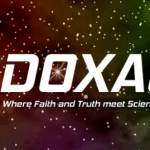I’m excited to announce that I’ll be giving the keynote speech at this year’s Doxacon (a Christian convention on fantasy and science fiction)! Tickets are on sale now (and there’s an early bird rate, so if you think you’ll come, or you have a friend who would be interested, go ahead and book). My husband (pictured above with me when we saw Captain America: Civil War) will also be speaking at Doxacon, and here’s what we’re both speaking on: Leah... Read more
















